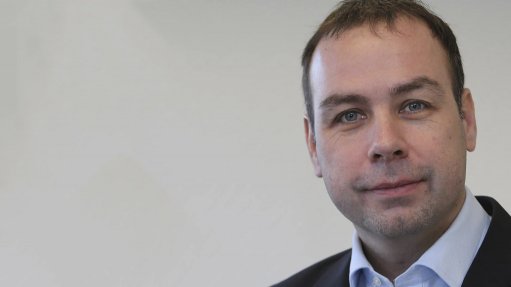
MARKUS THILL The programme aims to ensure that children from various backgrounds have an opportunity to study robotics
Engineering company Bosch’s Outreach Robotics Programme has provided participants the opportunity to compete in the 2017 World Robot Olympiad, in Costa Rica, in November this year.
Established in 2015, the programme aims to ensure that children from various backgrounds have an opportunity to study robotics and provide a platform for an evolving education system to prepare today’s youth to face tomorrow’s challenges, states Bosch Africa-region president Markus Thill.
Bosch – owned by the Robert Bosch Stiftung (92%), family (7%) and German private company Robert Bosch (1%) – allocated €25 000 in September 2015 to the Robotics Outreach Programme. This investment resulted in two local teams qualifying and competing in the 2016 World Robot Olympiad, held in New Delhi, India.
The programme has continued to bear fruit this year, with the children from the outreach programme being provided with an opportunity to compete in Costa Rica, he notes. The children are required to qualify through regional and national competitions.
The World Robot Olympiad competition consists of four categories: regular, college, open and soccer. The regular and open categories consist of three different age groups: elementary, junior high and senior high.
Participants younger than 13 years are considered elementary, participants between 13 and 16 years are considered junior high and participants between 17 and 19 years are considered senior high.
Participants can also compete outside their age group, but they must be younger than the specified age range and must partner with someone in that age range.
The Outreach Robotics Programme is the company’s primary initiative to establish a robotics laboratory at the Deutsche Schule, in Pretoria, with the laboratory serving as a learning foundation for teachers and students.
Teachers from Pula Difate Primary School, Koos Matli Primary, Nantes Primary School and Norridge Primary School, all in Pretoria, as well as Sikhanyisile Primary School in Manzini, in Swaziland, were invited to participate in the training course to ensure that they can provide robotics education for students at the Deutsche Schule and their own schools.
Training the teachers takes about six months and once they have completed their training, the schools are provided with the necessary hardware and kits for students to build the robots, says Thill.
“Robotics encompasses mathematics, engineering, science and technology; and can provide students with an alternative learning methodology where problem solving furthers their education,” he explains.
Thill adds that learners from these schools who struggled with mathematics and science are coping better with the subjects, as robotics education combines the application of various possibilities through problem solving with trial and error, as well as research through prototyping.